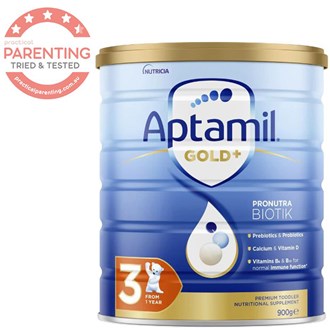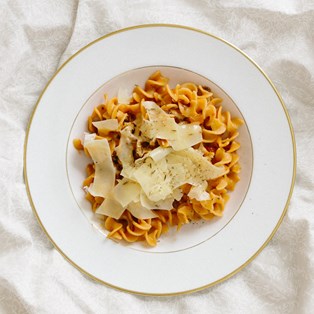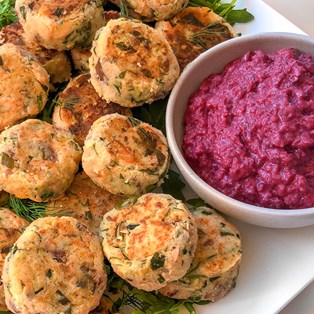Feed the family without being a short-order cook

Avoid slaving away in the kitchen with these tips.
By Livia Gamble
April 05 2023
A fussy spouse, a child who’s a picky eater and a baby new to solids can see a lot of parents slaving away in the kitchen, accommodating the different requests of each family member.
This can often result in our children’s meals resembling the kid’s menu at a restaurant, consisting of chicken nuggets, spaghetti, cheese pizza or crumbed fish and chips, which is hardly the basis of a healthy, balanced diet.
Avoid bad habits
Children quickly learn that when they refuse what mum and dad are eating, something will be whipped up that’s more to their taste. A major concern for parents is that their child isn’t eating enough, which encourages the ‘short-order cook’ habits.
Remember, your littlie won’t starve if she has a smallish dinner or even misses dinner every once in a while. In fact, it’s normal. However, initiating bad eating habits won’t help your child in the long run, and serving up the same bland, recognised tastes each night may establish long-term food fussiness.
Try to enforce the rule: our family sits together and enjoys the one meal. Eating the same meal also enables parents to model healthy food behaviours and shows your child that what you’re eating is safe and enjoyable. This will help with food acceptance.
It may mean that previously enjoyed super spicy curries and laksa are off the menu for a while, but with a few small alterations you can have your flavour and your time back, too!
One main ingredient to be mindful of when cooking for littlies is the salt. Bub’s immature kidneys aren’t able to deal with salt as adults’ can, so keep it and salty ingredients such as soy or fish sauce, processed meats, packet sauces and large amounts of stock to a minimum. Add salt to taste to your own meals if you really want it.
Baby’s first foods
Try to incorporate your family’s favourite flavours early on. Avoid relying on ready-made baby foods so these aren’t the only flavours and textures bub recognises. Using snippets of your meal to form her first foods will not only save time but also ensure bub receives essential nutrients, including iron and zinc, within her first few tastes. Foods rich in iron and zinc include red meats, such as beef and lamb, poultry and fish, as well as vegetarian alternatives such as eggs and beans, which often form the basis of most Aussie dinners.
One family, one meal
ROAST DINNER can be easily modified to work for the whole family and is great for leftovers throughout the week.
Toddlers – serve similar to adults’ meals, ensuring the meat is soft and easy to chew.
Babies – purée a little extra well-cooked meat or chicken with vegetables such as sweet potato and pumpkin for fibre.
FRITTATA OR ZUCCHINI SLICE is a great go-to meal when you’re running short on time, and a great vehicle for incorporating a few extra vegetables.
Toddlers – serve in fingers.
Babies – blend or scramble for a new eater, adding a little milk if needed, or mash a hard-boiled egg for a quick, nutrient-dense meal.
SHEPHERD’S PIE AND SPAGHETTI BOLOGNESE are great family meals, popular with adults and littlies alike.
Toddlers – serve as is, or mash up leftovers and spread over sandwich fingers for an easy-to-handle food.
Babies – blend a little mince mixture for an iron-rich dinner, or blend or mash pasta, served plain or with a cheesy sauce.
SLOW-COOKED MEALS are great for cooking meat to a soft texture for new eaters and provide a flavoursome dinner for mum and dad.
Toddlers – serve a small portion as is.
Babies – blend or flake the meat off the bone served with puréed or mashed vegetables, rice or barley.
TUNA PASTA BAKE can be adapted to be nutritionally balanced for the whole family by adding lots of diced vegetables and using a tomato-based sauce rather than cream.
Toddlers – serve a small portion as is.
Babies – serve the flaked tuna with mashed pasta if they are in the mashed stage of solids, or purée with a little milk.













